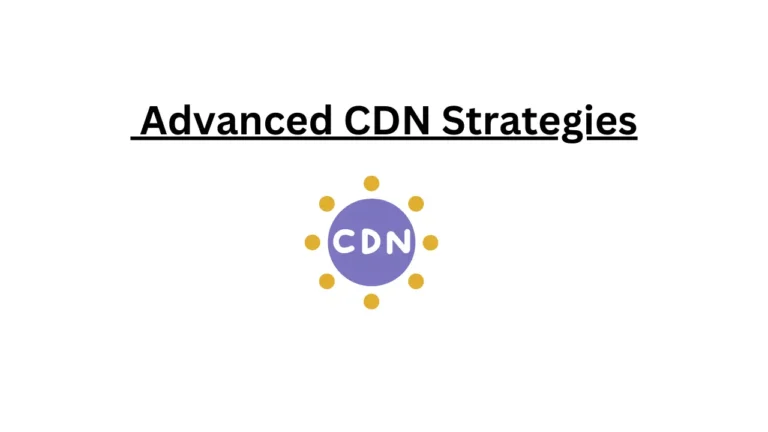In the bustling world of website hosting, finding the perfect fit for your online presence can feel like navigating a maze of options. From shared hosting, akin to cozying up in an apartment building with fellow tenants, to the more exclusive realms of VPS hosting, offering the privacy and control of a private apartment within a building, each option holds its own allure and advantages. But how do you determine which is the ideal match for your website’s needs? Fear not, dear reader, for we’re here to unravel the complexities and guide you through the shared vs. VPS hosting conundrum.

Understanding Shared Hosting
Picture yourself stepping into a bustling apartment building, where numerous tenants coexist within shared spaces. Shared hosting operates on a similar premise, with multiple websites residing on a single physical server and sharing its resources, including CPU, RAM, and storage. It’s like living in an apartment block, where you enjoy the benefits of communal living but must also navigate occasional limitations and compromises.
Shared hosting boasts undeniable perks, especially for those venturing into the online realm for the first time or running small-scale websites. Its affordability makes it an attractive option for budget-conscious individuals, offering a cost-effective entry point into the world of hosting. Moreover, shared hosting requires minimal technical expertise, as most providers handle the server management tasks, leaving you free to focus on crafting your digital masterpiece. However, akin to apartment living, shared hosting does come with its share of drawbacks. Since resources are shared among multiple websites, performance fluctuations may occur, impacting the speed and responsiveness of your site. Additionally, customization options are often limited, and security concerns loom as shared resources can potentially expose your website to vulnerabilities, although reputable hosting providers implement robust security measures to mitigate risks.
Exploring Shared Hosting Providers
Now that we’ve delved into the shared hosting experience, let’s take a closer look at some leading providers in this space. Bluehost stands out for its beginner-friendly shared plans, offering a robust set of features at competitive prices. Whether you’re launching a personal blog or a small business website, Bluehost’s reliable performance and user-friendly interface make it a popular choice among novice webmasters. If budget is a primary concern, Hostinger emerges as a frontrunner, offering budget-friendly shared hosting plans without compromising on quality or customer support. Meanwhile, Namecheap distinguishes itself with its diverse array of shared hosting options, catering to a wide range of needs and preferences. With these trusted providers at your disposal, embarking on your online journey becomes a seamless endeavor.
Venturing into VPS Hosting
As we ascend to the next tier of hosting solutions, the landscape transforms, offering greater autonomy and control over your digital domain. VPS hosting, likened to residing in a private apartment within a building, grants you dedicated resources within a virtualized environment, ensuring enhanced performance, security, and flexibility. Imagine having the freedom to tailor your living space to suit your unique tastes and preferences—VPS hosting offers a similar level of customization and personalization for your website.
Unlike shared hosting, where resources are shared among multiple users, VPS hosting allocates specific resources exclusively to your website, minimizing performance bottlenecks and optimizing responsiveness. Additionally, the scalability inherent to VPS hosting enables seamless expansion as your website grows and evolves. Whether you’re running a bustling e-commerce store or a resource-intensive application, VPS hosting empowers you to meet the demands of your online audience with ease. However, it’s essential to note that VPS hosting does require a higher level of technical proficiency, as you’ll be responsible for managing your virtual server environment. While this may seem daunting at first, the rewards of greater control and autonomy make it a worthwhile investment for ambitious webmasters.
Navigating the VPS Hosting Landscape
As you embark on your quest for the perfect hosting solution, it’s imperative to acquaint yourself with the leading players in the VPS hosting arena. DigitalOcean emerges as a favorite among developers and tech enthusiasts, offering affordable VPS plans packed with robust features and unparalleled control. Whether you’re launching a new project or migrating an existing website, DigitalOcean’s intuitive platform and extensive documentation empower you to unleash your creativity without constraints. Meanwhile, Vultr captures the hearts of performance-driven individuals with its high-performance VPS hosting solutions and flexible pricing options. With data centers strategically located around the globe, Vultr ensures lightning-fast performance and unparalleled reliability for your online endeavors. Last but not least, Kamatera shines as a beacon of reliability and versatility, boasting a diverse range of VPS configurations and global data center locations. Whether you’re seeking raw computing power or unparalleled scalability, Kamatera delivers tailored solutions to suit your specific requirements.
Making the Right Choice
As you weigh the merits of shared vs. VPS hosting, it’s essential to consider your website’s unique requirements, technical proficiency, and budgetary constraints. Shared hosting serves as an excellent starting point for budding webmasters or those operating low-traffic websites, offering a cost-effective and user-friendly solution to kickstart your online journey. Conversely, VPS hosting caters to the needs of ambitious entrepreneurs and seasoned professionals, providing the flexibility, performance, and control necessary to thrive in today’s digital landscape. By assessing your hosting needs with care and deliberation, you can embark on a transformative journey towards online success, armed with the knowledge and insights needed to make an informed decision. So, whether you’re settling into the communal comforts of shared hosting or embracing the autonomy of VPS hosting, rest assured that your digital dreams are within reach.
Conclusion
In the ever-evolving realm of website hosting, the choice between shared and VPS hosting represents a pivotal decision that can shape the trajectory of your online endeavors. By understanding the nuances of each hosting solution and evaluating your website’s unique requirements, you can navigate this landscape with confidence and clarity. Whether you opt for the communal comforts of shared hosting or the autonomy of VPS hosting, remember that your website’s success ultimately hinges on the quality of the hosting solution you choose. So, embark on your hosting journey with curiosity, diligence, and a sense of adventure, knowing that the perfect hosting fit awaits you on the horizon.
FAQs About Shared vs. VPS Hosting:
1. What’s the primary distinction between shared and VPS hosting?
- Shared hosting involves multiple websites sharing resources on a single server, whereas VPS hosting provides dedicated resources within a virtualized environment.
2. Which hosting option is better suited for beginners?
- Shared hosting is often recommended for beginners due to its affordability and user-friendly interface, making it easier to get started with website hosting.
3. Is VPS hosting more costly than shared hosting?
- Yes, VPS hosting typically comes at a higher cost compared to shared hosting due to the dedicated resources and enhanced performance it offers.
4. What factors should I consider when choosing between shared and VPS hosting?
- Considerations include your website’s traffic, technical expertise, budget, and the level of control and customization you require for your website.
5. Can I upgrade from shared to VPS hosting as my website grows?
- Yes, many hosting providers offer seamless upgrade options, allowing you to transition from shared to VPS hosting as your website’s needs evolve.
6. Are there any security concerns with shared hosting?
- While shared hosting can pose security risks due to shared resources, reputable hosting providers implement robust security measures to mitigate these concerns.
7. What level of technical knowledge is required for managing a VPS server?
- Managing a VPS server typically requires a higher level of technical proficiency compared to shared hosting, as you’ll be responsible for server configuration and maintenance tasks.
8. Which hosting providers are recommended for shared and VPS hosting?
- Recommended shared hosting providers include Bluehost, Hostinger, and Namecheap, while popular VPS hosting providers include DigitalOcean, Vultr, and Kamatera.
9. Can I customize my server settings with shared hosting?
- Shared hosting typically offers limited customization options compared to VPS hosting, as resources are shared among multiple users on the same server.
10. What are the scalability options with VPS hosting?
– VPS hosting provides scalable solutions, allowing you to easily upgrade your resources as your website grows in traffic and complexity.

